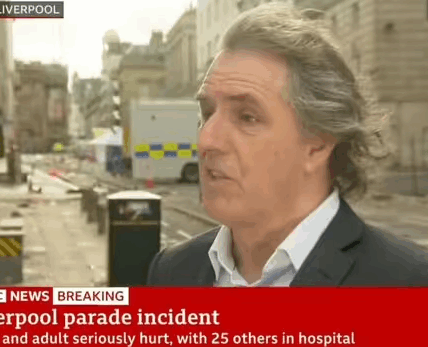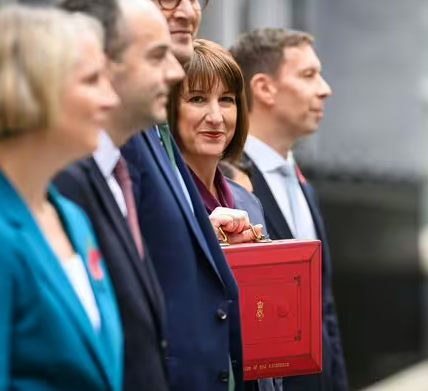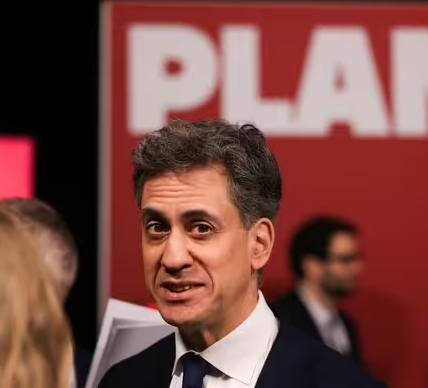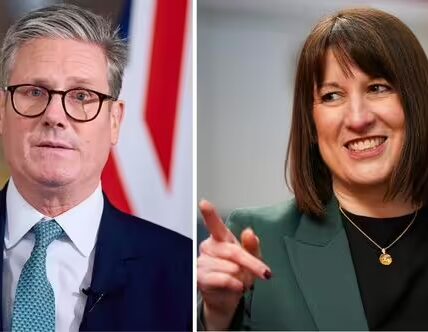Chancellor ‘between a rock and a hard place’ as she refuses to rule out further tax rises amid sluggish finances

Chancellor Rachel Reeves refuses to rule out future tax rises (Image: Getty)
Rachel Reeves’s claim to have “fixed” the economy was blown apart as official figures showed it shrank in April while the Chancellor was unable to rule out further tax increases. Business leaders blamed the Chancellor’s decision to increase National Insurance contributions as well as Donald Trump’s tariffs, after the Office for National Statistics reported that the economy contracted by 0.3% in April.
The figures came one day after Ms Reeves boasted of “fixing the foundations of our economy” and embarked on a £300billion spending spree in her Spending Review. Asked whether she could guarantee there would be no further tax rises, Ms Reeves said: “I think it would be very risky for a Chancellor to try and write future Budgets in a world as uncertain as ours.”
But she insisted growth would improve as a result of new trade deals. She said on Thursday: “April was a challenging month. It was when the US introduced their tariffs. And if you dig into the numbers that were published today, trade numbers were weak, production numbers were weak. But since then, of course, we have secured trade deals with the United States, with India, and with the EU as well.”
Former Treasury official Andy King said the Chancellor was between “a rock and a hard place” and could be forced to raise more money in her Budget statement, expected in October.
He warned: “The employer National Insurance and national living wage rises look to have done much more damage to employment than was allowed for.
“I think from where we are today, the writing seems to be on the wall for another fiscal hole in the autumn.”
James Smith, research director at the Resolution Foundation, warned the Government was borrowing more than expected. “All this pushes you towards suspecting that the autumn Budget will be one where the Chancellor has to come back and actually has to raise some taxes,” he said.
The impact of Mr Trump’s tariffs was highlighted by separate figures showing UK goods export values to the US fell by almost a third between March and April.
However, the British Chambers of Commerce said the Chancellor’s National Insurance rise had damaged confidence, after a survey of its members found eight in 10 expected it to hold back recruitment and investment.
Conservatives accused Ms Reeves of “economic vandalism”. Shadow Chancellor Sir Mel Stride said: “Under Labour, we have seen taxes hiked, inflation almost double, unemployment rise, and growth fall. With more taxes coming, things will only get worse and hard-working people will pay the price.”
The GDP figures come a day after the Chancellor revealed her spending plans for the coming years, including a significant increase in spending on health, defence and schools.
NHS funding will rise by £29billion per year in real terms, leading the Resolution Foundation’s Ruth Curtice to say Britain was slowly morphing into a “National Health State”. Nearly half of all day-to-day government spending will go to health by 2028-29, up from a third in 2009-10.
Paul Johnson, director of the Institute for Fiscal Studies, said higher NHS funding “left very little to share out among other departments”.
He warned the schools’ budget “looks tight” when there is growing pressure to help children with special educational needs.
Mr Johnson said: “Outside of additional spending on free school meals, it is essentially flat in real terms. Falling pupil numbers should give some room for manoeuvre and result in a modest real increase in per pupil funding, but absent some serious cost-saving reforms, ever-growing spending on special educational needs is likely to swallow much – or perhaps all – of that funding growth.”
He also cautioned there could be “trouble ahead” if trade unions are not satisfied with pay increases “broadly in line with inflation”.




